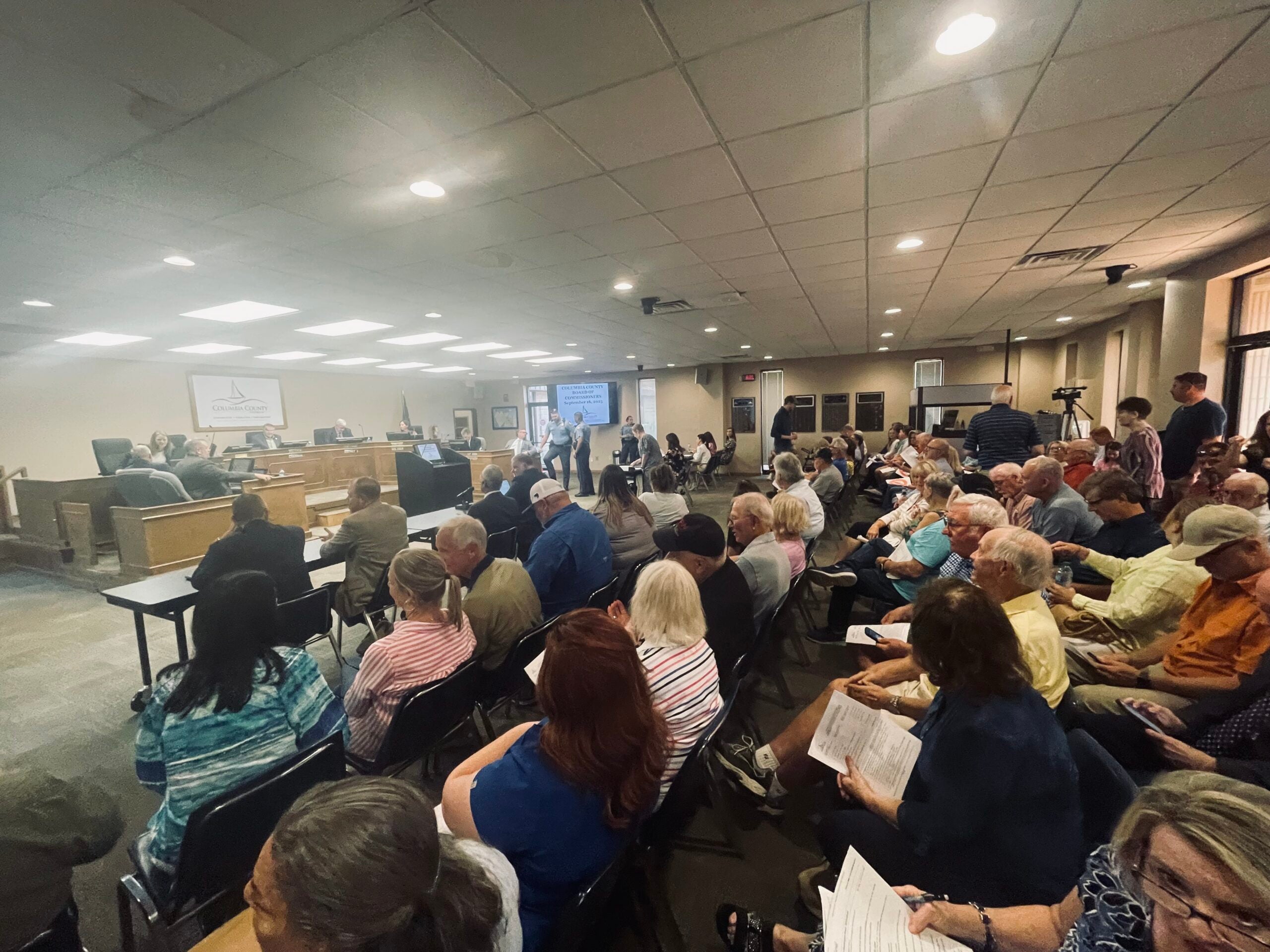The Columbia County Board of Commissioners (BOC) will not be considering reversing its vote to rezone parcels of land in Appling to make away for data centers, said BOC Chairman Doug Duncan, Tuesday night.
Columbia County resident Alan Wyatt, when he spoke before the BOC during the meeting’s public comment portion, contended that the public should have had more time to weigh on the data center project,
“Only three months after approval, a compressed schedule from initial filings to approval left no room for education, for debate or for alternatives,” said Wyatt before the board. “It was presented to us as a fait accompli. Even the Technology Park informational website only appeared in July.”
Wyatt went on to contend that the data center does not fit with the county’s Vision 2035 Comprehensive Plan because it doesn’t “protect the rural character of Appling,” and that by “reversing the rezoning” the county could “mandate full disclosure and then engage the public appropriately.”
All four current commissioners on the board gave prepared remarks responding to inquiries about data centers and Columbia County’s ability to accommodate them, physically and financially.
Duncan noted to attendees of Tuesday night’s meeting that there are two basic kinds of cooling systems that data centers use: open loop, which uses outside air and water to cool data systems more efficiently, but consumes more water; and closed loop, which uses far less water, but requires more energy to use.
Any data center developer would be required to pay the estimated $80 million to build a cooling system and provide its water, Duncan said, “which would be on the developer, not the county.”
Duncan also announced that the BOC directed planned staff “several weeks ago” to start work on a new zoning classification designated specifically for data centers.
begin work our new zoning classification that would apply to any requests for data centers, which would be a standalone zoning much like commercial that will outline exactly what can and cannot be done on data centers like Columbia County.
“We’re committed to addressing the issues that have been brought to our attention in the zoning while including best practices from other communities that have already experienced this type of construction,” said Duncan before highlighting the potential tax benefits to the county.
The data center project is estimated to generate “billions,” he said. Columbia County’s general fund is about $100 million, he said, $20 million of which comes from homestead property taxes. Should the data center project yielded even $500 million, Duncan posited, Columbia County would be able to implement a homestead exemption.
Skyler Q. Andrews is a staff reporter covering general reporting for The Augusta Press. Reach him at skyler@theaugustapress.com










